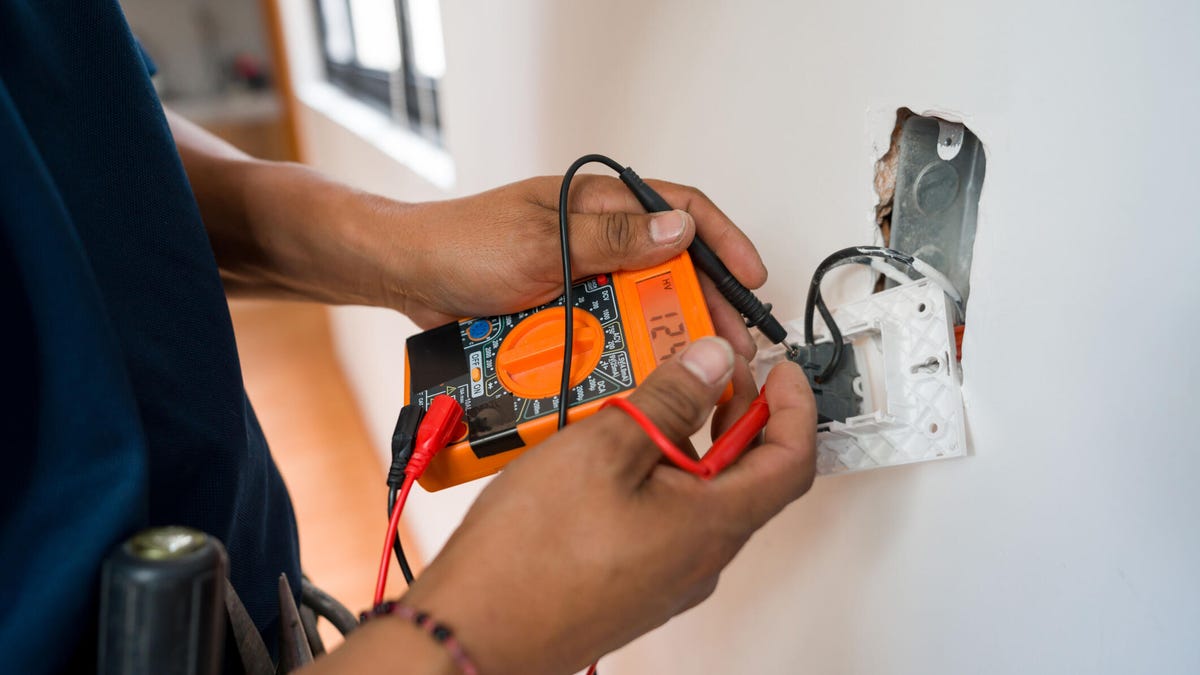Why Your Home's Energy System Isn't 100% Efficient
You won't get all of the energy you put into a solar and storage system out of it in the end. Here's how much you'll lose and whether it's a problem.

Little amounts of electricity are lost throughout your home's energy system.
When you install any kind of home energy system there are a lot of small parts that make up the whole.
The reality of these systems is that, as electricity travels from solar panels, through wires and inverters and into batteries, some of the energy gets lost. That's because no system has 100% energy efficiency. But what is electrical efficiency, and why does it matter?
Experts say understanding the efficiency of any electrical equipment you're installing in your home is key to getting the most out of your investment. Here's what you need to know.
Can solar panels save you money?
Interested in understanding the impact solar can have on your home? Enter some basic information below, and we’ll instantly provide a free estimate of your energy savings.
What is electrical efficiency?
Electrical efficiency is essentially a ratio, according to Jacquelyn Omotalade, climate investments national director at Dream.org, a climate justice organization.
The efficiency of any technology is a measurement of how much useful electrical output you get compared to a given electrical input, Omotalade says. Think of it in terms of solar panels on a sunny day: In a highly efficient system, you'll get a lot of electricity out of that solar input; in an inefficient system, you'll get a smaller fraction of the sun's power.
Efficiency extends beyond the panels themselves. Everything in your home that carries electricity, from the solar inverter to the wiring in your walls, has an efficiency rating, and power might be lost if your system is inefficient.
But where does that "lost" power actually go? "It's not used, and it just goes away," Omotalade said. Energy might be lost for several reasons, like wasted heat or natural resistance within the system.
Why does electrical efficiency matter?
So now you know what electrical efficiency is, but why should you care?
Well, if you're going to invest tens of thousands of dollars in a highly efficient solar panel system you want to make sure your home can match that. If the panels are connected to an inefficient inverter or battery or home wiring, you'll lose some of the power your panels are generating.
Understanding efficiency can also help you size your system correctly. More efficient solar panels mean you'll need fewer panels to generate the desired amount of power, compared to less efficient panels. Efficiency also impacts cost, and higher efficiency products can be more expensive.
Omotalade says that electrical efficiency is also a matter of climate justice. In many urban and minority communities, older homes have lower electrical efficiency, meaning residents will get less out of investments like solar panels.
What is good electrical efficiency?
You might be wondering: What numbers should I actually be looking for here? It depends on the technology, but as a general rule of thumb: The higher the electrical efficiency, the better.
Let's break it down.
What is a good efficiency rating for solar panels?
A good efficiency rating for solar panels is between 19% and 22%, according to Becca Jones-Albertus, director of the Solar Energy Technologies Office in the US Department of Energy.
"The most efficient solar panels on the market can convert more than 22% of sunlight into electricity," Jones-Albertus said in an email.
Most people would want a higher-efficiency solar panel that can convert more sunlight, but you can get away with a lower efficiency if you have more roof space for more panels. "For example, a 6,000-watt PV system utilizing solar panels that are 22% efficient will take up less physical space than a 6,000-watt PV system utilizing solar panels that are 19% efficient, but both will be rated to produce the same amount of power," Jones-Albertus said.
It's also important to note that efficiency will decline as your solar panels age. Jones-Albertus says the best panels will retain about 90% of their original efficiency rating by the end of the warranty period, which is usually 25 to 40 years.
And of course, temperature can affect efficiency, too. While you want sunny days to generate electricity, extreme heat can diminish power output from the panels by as much as 16% in average panels, according to Jones-Albertus.
What is a good efficiency rating for home batteries?
The numbers here are quite different. When you're looking at battery efficiency ratings, aim for something with about 85% efficiency, Jones-Albertus says. Newer batteries can eclipse 90% efficiency.
Remember that efficiency is a ratio, so with home batteries, the efficiency measures how much energy goes into the battery versus how much you can pull out.
Just like solar panels, battery efficiency is not static. The age of the battery, the temperature of where it's stored and the number of charge discharge cycles it's completed can all affect that efficiency number during use.
"As with all types of batteries, efficiency and energy storage capacity will degrade over the useful life of the battery system," Jones-Albertus said.
What is a good efficiency rating for solar inverters?
Here's where you're looking for the highest efficiency numbers. Solar inverters are a key piece of equipment that takes the energy coming in from solar panels and makes it usable as electricity in your house.
Jones-Albertus recommends seeking out solar inverters with efficiencies in the 96 to 97% range -- meaning there will be virtually no power loss as the energy flows from your solar panels into your home. The most efficient inverters can reach 99% efficiency.



